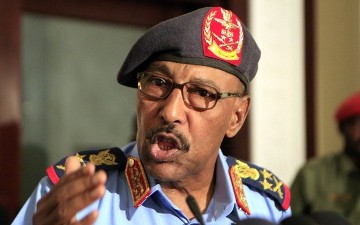Khartoum reiterates support for Juba government
March 19, 2014 (KHARTOUM) – Sudan and South Sudan have agreed to remove obstacles facing implementation of the joint cooperation agreements signed between the countries.

The Sudanese defence minister, Abdel-Rahim Mohamed Hussein, said in a joint press conference with Juuk following the latter’s meeting with Bashir that Khartoum strongly supports the legitimate government in Juba.
He noted that the joint security committee between the two countries held a meeting on Wednesday to discuss the security issues hampering implementation of the cooperation agreements particularly those relating to completion of the zero baseline, the border crossings and the monitoring mechanisms besides mechanisms for implementing trade and industry agreements.
Hussein further said that the meeting discussed the situation in the contested Abyei region and the administrative and security arrangements in the area.
The South Sudanese defence minister for his part said his government is satisfied with Sudan’s stance towards the ongoing conflict in his country, and underscored that Juba is obliged to “give back” to Khartoum.
He also said that South Sudan is keen to achieve joint cooperation across the borders, noting that priority must be given to resolving security issues.
Before the start of the South Sudanese conflict, Juba and Khartoum agreed to normalise relations and to implement a cooperation agreement signed in 24 September 2012. The two countries have, however, failed to deploy a joint force to monitor the border because of their difference over the baseline for the demilitarised security zone called zero line.
(ST)
